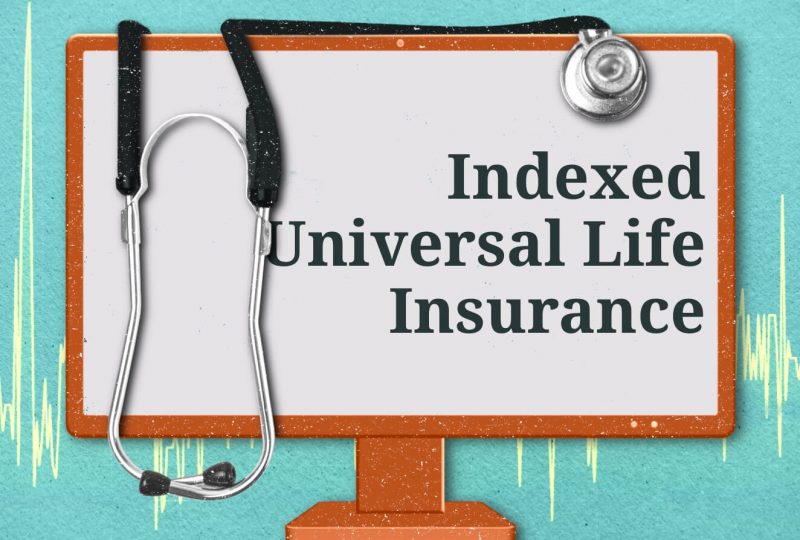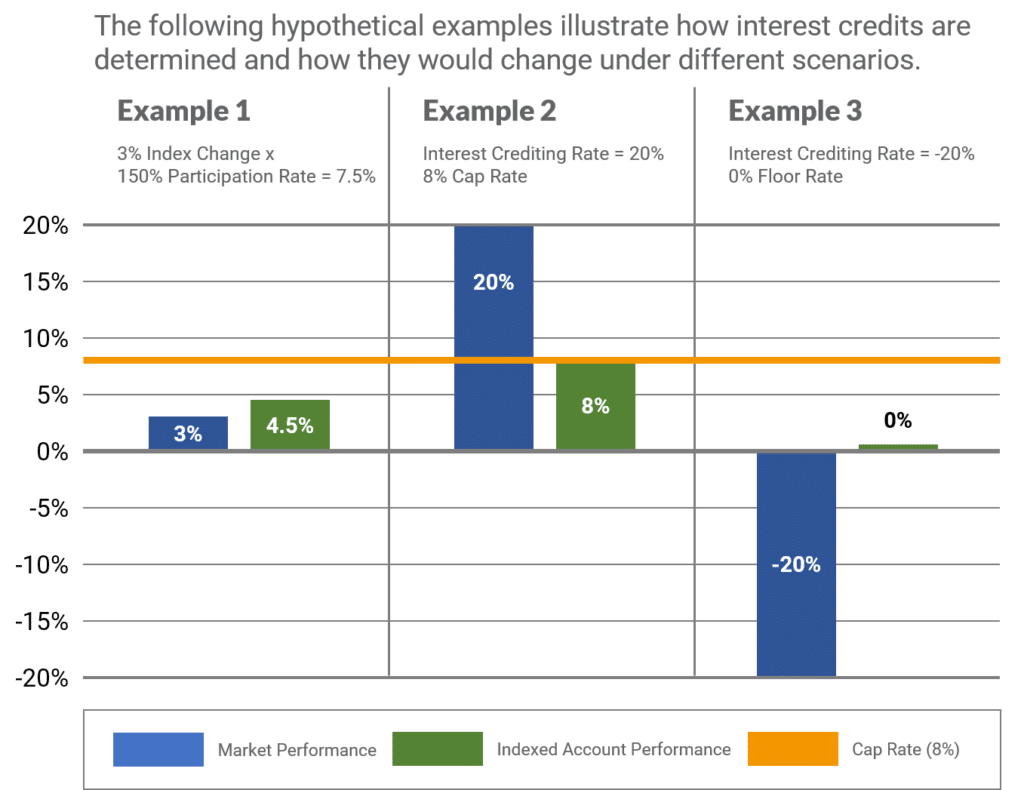All Categories
Featured
Table of Contents
Indexed Universal Life (IUL) insurance is a kind of irreversible life insurance policy plan that integrates the functions of traditional global life insurance policy with the capacity for money value growth connected to the efficiency of a stock exchange index, such as the S&P 500 (Indexed Universal Life policy). Like other types of permanent life insurance policy, IUL gives a survivor benefit that pays to the recipients when the insured passes away
Cash value build-up: A part of the costs settlements enters into a cash money value account, which makes rate of interest over time. This cash money value can be accessed or borrowed versus throughout the insurance holder's life time. Indexing alternative: IUL policies supply the chance for cash value growth based on the performance of a supply market index.
What does a basic Long-term Iul Benefits plan include?
As with all life insurance policy items, there is also a collection of risks that policyholders must know before considering this type of plan: Market risk: Among the primary dangers related to IUL is market risk. Given that the money worth growth is linked to the performance of a supply market index, if the index performs inadequately, the cash money value might not expand as expected.

Adequate liquidity: Insurance holders should have a stable financial circumstance and be comfortable with the superior payment requirements of the IUL plan. IUL permits for flexible premium settlements within certain limits, but it's important to maintain the policy to ensure it achieves its desired objectives. Rate of interest in life insurance coverage: Individuals that need life insurance coverage and a passion in cash money worth growth may locate IUL appealing.
Prospects for IUL should have the ability to recognize the auto mechanics of the policy. IUL might not be the very best choice for individuals with a high tolerance for market danger, those who prioritize low-cost financial investments, or those with even more instant monetary requirements. Consulting with a certified monetary advisor that can provide customized assistance is important before considering an IUL plan.
All registrants will obtain a schedule invite and link to sign up with the webinar using Zoom. Can't make it live? Register anyway and we'll send you a recording of the presentation the following day.
What should I know before getting Indexed Universal Life Insurance?
You can underpay or miss premiums, plus you might be able to readjust your survivor benefit. What makes IUL various is the way the money worth is spent. When you get an indexed universal life insurance plan, the insurer offers a number of alternatives to pick at the very least one index to make use of for all or component of the cash value account sector of your plan and your survivor benefit.
Cash value, along with potential growth of that worth with an equity index account. A choice to allocate part of the cash value to a fixed passion alternative.
Insurance policy holders can determine the portion designated to the dealt with and indexed accounts. The value of the selected index is videotaped at the start of the month and compared to the worth at the end of the month. If the index raises during the month, interest is included in the cash worth.
The resulting passion is included to the cash value. Some plans calculate the index obtains as the sum of the modifications for the duration, while various other policies take a standard of the day-to-day gains for a month.
How can I secure Indexed Universal Life Death Benefit quickly?
The price is established by the insurance business and can be anywhere from 25% to more than 100%. (The insurer can also change the participate rate over the life time of the policy.) If the gain is 6%, the involvement price is 50%, and the current cash worth total amount is $10,000, $300 is added to the cash money value (6% x 50% x $10,000 = $300).
There are a variety of advantages and disadvantages to take into consideration before purchasing an IUL policy.: Just like conventional global life insurance coverage, the policyholder can increase their premiums or reduced them in times of hardship.: Amounts credited to the money worth expand tax-deferred. The money value can pay the insurance policy costs, allowing the insurance policy holder to decrease or stop making out-of-pocket premium settlements.
Can I get Iul Interest Crediting online?
Lots of IUL plans have a later maturation date than other kinds of global life plans, with some ending when the insured reaches age 121 or more. If the insured is still alive back then, plans pay the survivor benefit (but not normally the cash value) and the profits may be taxed.

: Smaller sized policy stated value don't offer much benefit over routine UL insurance coverage policies.: If the index drops, no rate of interest is credited to the cash worth. (Some plans offer a reduced assured price over a longer period.) Other investment vehicles use market indexes as a standard for performance.
With IUL, the objective is to profit from higher motions in the index.: Due to the fact that the insurance provider only buys options in an index, you're not directly purchased stocks, so you do not profit when firms pay dividends to shareholders.: Insurers charge costs for handling your cash, which can drain pipes cash money value.
Guaranteed Indexed Universal Life

For lots of people, no, IUL isn't far better than a 401(k) - Indexed Universal Life policy in terms of saving for retirement. The majority of IULs are best for high-net-worth people looking for methods to decrease their gross income or those that have actually maxed out their various other retired life options. For everybody else, a 401(k) is a better investment vehicle since it doesn't lug the high costs and costs of an IUL, plus there is no cap on the amount you may make (unlike with an IUL plan)
While you may not lose any type of cash in the account if the index goes down, you will not gain rate of interest. If the market transforms favorable, the earnings on your IUL will not be as high as a common financial investment account. The high expense of premiums and fees makes IULs costly and significantly much less budget friendly than term life.
Indexed global life (IUL) insurance coverage provides cash money value plus a death advantage. The cash in the cash worth account can make interest via tracking an equity index, and with some usually allocated to a fixed-rate account. Indexed universal life policies cap how much cash you can collect (typically at less than 100%) and they are based on a possibly unpredictable equity index.
Why should I have Indexed Universal Life For Retirement Income?
A 401(k) is a far better option for that purpose due to the fact that it doesn't carry the high charges and premiums of an IUL policy, plus there is no cap on the quantity you may gain when spent. The majority of IUL plans are best for high-net-worth individuals looking for to lower their taxed earnings. Investopedia does not give tax obligation, investment, or financial solutions and recommendations.
If you're taking into consideration getting an indexed universal life policy, first talk to a financial consultant who can discuss the subtleties and provide you a precise picture of the real potential of an IUL policy. Make certain you comprehend exactly how the insurer will determine your interest price, incomes cap, and charges that may be evaluated.
Latest Posts
Mortality Charge For Universal Life Policies
Best Variable Universal Life Insurance Policy
Maximum Funded Tax Advantaged Insurance Contracts